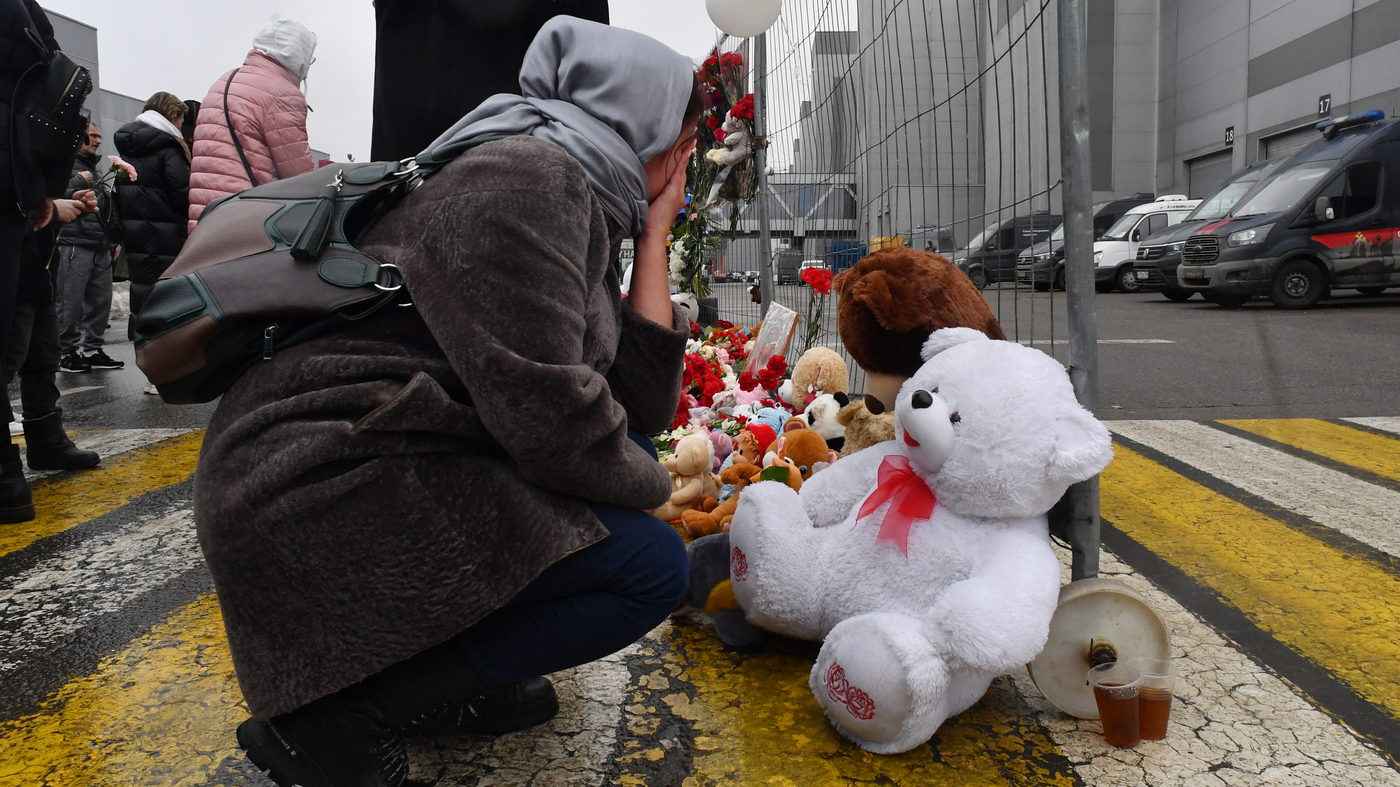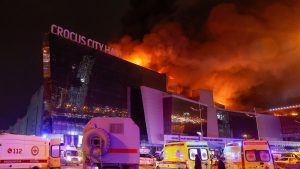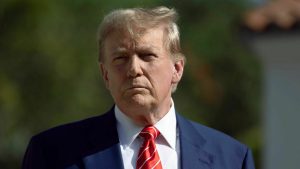
Russia observes a national day of mourning for victims of the concert hall attack
Russian Deputy Premier Sergei Putin in Moscow on Friday evening: The attack on the Crocus City Hall on the western outskirts of Moscow
The death toll from a mass shooting at a concert hall on the outskirts of Moscow Friday evening has risen to at least 133 people, as emergency responders continued to clear away the rubble. At least another 145 others were reported injured.
Putin said in the address to the nation that four suspected attackers were arrested on Saturday, with 11 others being suspected of involvement in the attack. He said that they were captured while fleeing to Ukraine.
A U.S. official confirmed to NPR that the U.S. believes an Islamic State affiliate group known as Islamic State Khorasan Province, or ISIS-K, was responsible for the attack. The group, based in eastern Afghanistan, claimed responsibility for the attack on its Telegram channel late Friday.
“The U.S. Government had information about a planned terrorist attack in Moscow – potentially targeting large gatherings, to include concerts,” Adrienne Watson, a spokesperson for the National Security Council, said in a statement.
In his speech, Putin didn’t mention IS, and it was found that he and other Russian politicians were linking the assault to the ongoing fight in Ukraine.
“They attempted to disguise themselves and moved towards the state border of Ukraine, where a window was put in for them to cross,” said Putin.
Russian investigators said the attackers were captured in the western Bryansk region, not far from the border with Ukraine. Ukrainian officials have denied any involvement, with Ukraine’s foreign ministry accusing Russian authorities of using the deadly assault to try to rally support for the Kremlin’s war in Ukraine.
The attack began late Friday after camouflaged gunmen carrying automatic assault rifles burst into the Crocus City Hall — a large shopping and entertainment center on the western outskirts of Moscow. Concertgoers had gathered at the venue to see the veteran Russian rock band Piknik.
The video footage shows the men shooting at people who were trying to hide. Some witnesses reported seeing the assailants pour a liquid on the concert hall’s seating and curtains before setting it on fire. Additional footage released by Russian authorities shows the charred seating and debris from inside the venue.
Russian families and friends of those still missing were waiting for news on Sunday as the country observed a day of national mourning.
Events at cultural institutions were canceled, flags were lowered to half-staff and television entertainment and advertising were suspended, according to state news agency RIA Novosti. A steady stream of people added to a makeshift memorial near the burnt-out concert hall, creating a huge mound of flowers.
It could be any of us in that situation because everyone came to a concert, some came to relax with their families. One of the mourners who came to lay flowers at the memorial said he wanted to pay tribute to the families that had been affected.
“It is a tragedy that has affected our entire country,” kindergarten employee Marina Korshunova said. “It just doesn’t even make sense that small children were affected by this event.” Three children were among the dead.
As rescuers continue to search the damaged building and the death toll rises as more bodies are found, some families still don’t know if relatives who went to the event targeted by gunmen on Friday are alive. Moscow’s Department of Health said Sunday it has begun identifying the bodies of those killed via DNA testing, which will need at least two weeks.
The Moscow-based Islamic State group is a “common terrorist enemy” that killed concertgoers in the Sinai attack, claimed by a Russian leader
After Pogadaev saw the reports of gunmen opening fire on concertgoers, he rushed to the site, but couldn’t find her in the numerous ambulances or among the hundreds of people who had made their way out of the venue.
I searched and showed the photographs to everyone. No one could say anything, so no one saw anything, according to Pogadaev.
As the death toll mounted on Saturday, Pogodaev scoured hospitals in the Russian capital and the Moscow region, looking for information on newly admitted patients.
There was a heavy police presence around the Moscow’s Basmanny District Court on Sunday, despite no court hearing being officially announced. Police tried to keep the journalists away from the court.
One of the suspects who told the cameras he was approached by an assistant to a Islamic preacher via a messaging app and paid to take part in the raid is shown in videos broadcast by Russian media.
The raid was a major embarrassment for the Russian leader and happened just days after he cemented his grip on the country for another six years in a vote that followed the harshest crackdown on dissent since the Soviet times.
Despite warnings from the US, Russian authorities did not prevent the attack because they had suppressed opposition activities and muzzled independent media.
The White House press secretary said the Islamic State group is a “common terrorist enemy” that must be defeated all over the world.
The group has carried out attacks in Russia’s volatile Caucasus and other regions in the past, but mainly in Syria and Iraq. It recruited fighters from Russia and other parts of the former Soviet Union.
The group issued a new statement Saturday on Aamaq, saying the attack was carried out by four men who used automatic rifles, a pistol, knives and firebombs. It said that the Islamic State group’s war with countries it says are fighting against Islam resulted in the attack and deaths of concertgoers.
In October 2015, a bomb planted by IS downed a Russian passenger plane over Sinai, killing all 224 people on board, most of them Russian vacationers returning from Egypt.

